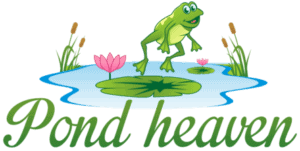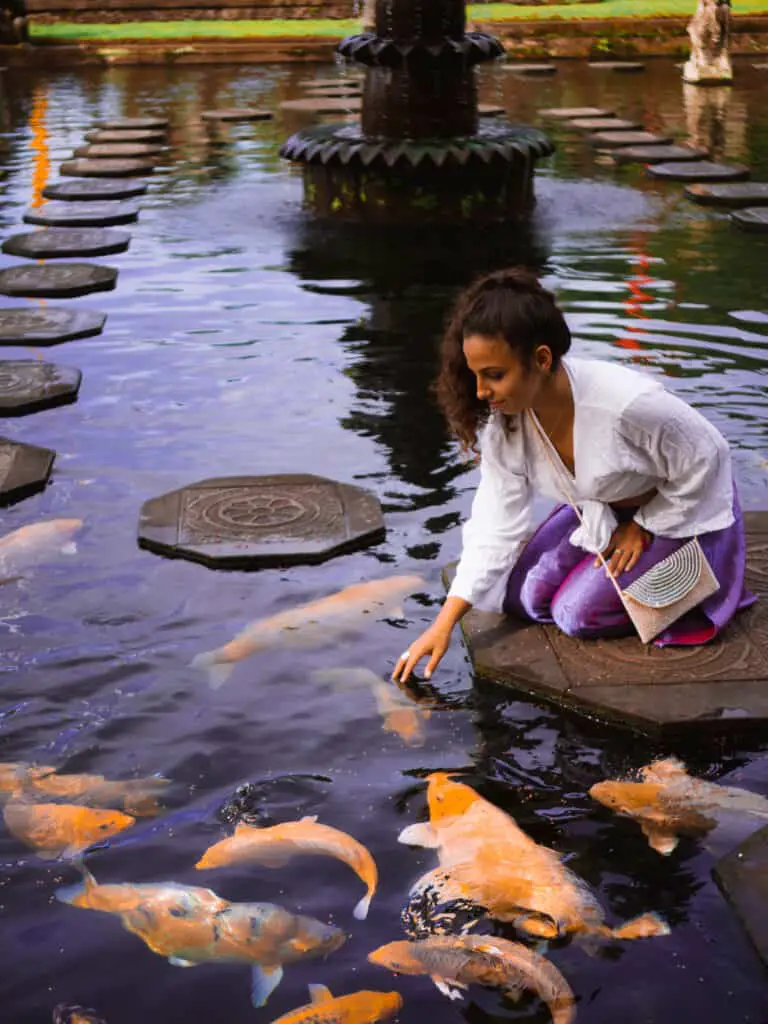
So you’re considering installing a koi pond, but like any responsible person, you’re doing your research first. It’s good to know what you’re letting yourself in for if you want to keep koi because it’s not the same as keeping goldfish. Koi have specific needs and requirements, and it costs to feed them and keep them healthy.
The pros of koi are: they are gorgeous, hardy, good for mental health, bring good luck in feng shui, long-lived, and provide educational opportunities for children. Cons are that their water quality must be maintained with filters and pumps, and they need a lot of water space to be healthy.
Good quality koi fish are not exactly cheap, and you don’t want to lose your money by getting involved in a hobby you’re not up for. That said, the hobby is growing steadily in the US as increasing numbers of people discover the joys of koi. This article offers a more detailed look at the pros and cons of koi.
Pro Tip: If you’re tired of wasting money and making costly mistakes on the koi-keeping hobby or are thinking about buying koi fish but don’t know where to start, I strongly suggest you check out this ebook. I recently read this ebook, and it contains SO much useful information, such as:
- 3 proven steps to identify koi fish diseases
- WARNING: 3 things you should NEVER do when it comes to caring for koi
- When to seek professional help when it comes to looking after your koi
The Pros Of Koi Fish
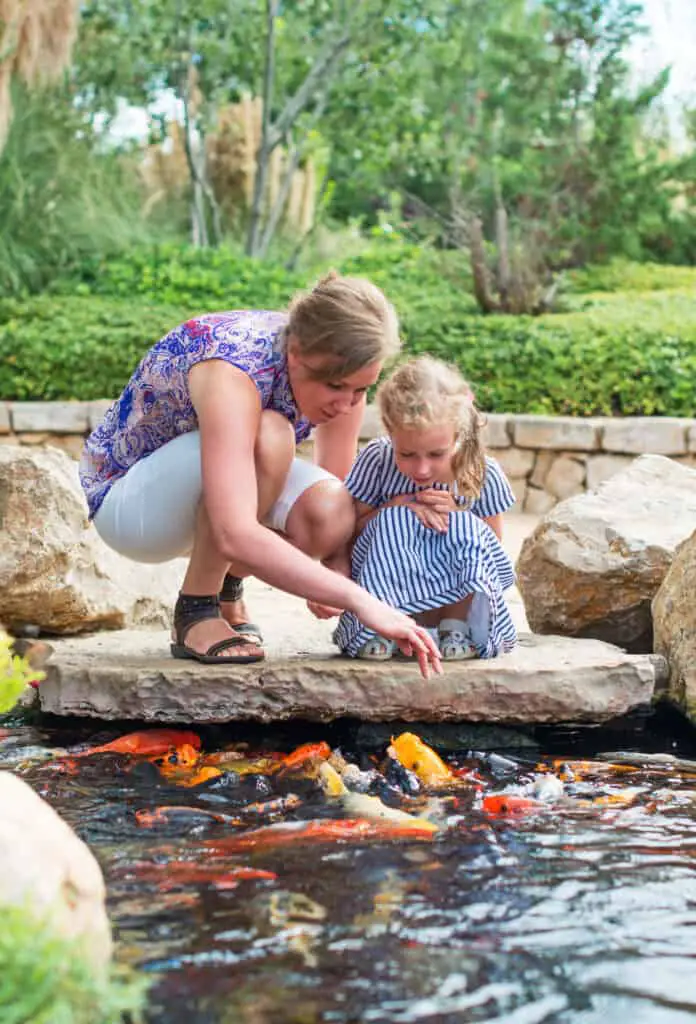
Koi fish are stunning; many people find them soothing and relaxing. This can be a big plus for mental health in our stressful times, something many busy people tend to neglect. Koi have been described as living art, and beauty is something everyone appreciates.
Koi Fish Are Friendly
Once they get to know you, they will feed from your hand, providing an opportunity to see them up close which can be a rewarding experience. Scientific research indicates that koi like to interact with humans, although the extent of the interaction varies between individual fish. So you can get to know your fish on quite a personal level.
The study showed that koi seek contact with someone they know even after being fed and that such interactions may reduce their stress and provide sensory or cognitive enrichment. The fish in the study were allowed to choose whether or not to approach the person, and researchers found that they displayed individual personality traits in this regard.
Koi Grow Much Bigger Than Goldfish
Koi grow much bigger than goldfish and are thus much more visible in a pond setting. Traditional Japanese koi grow larger than other domestic koi – between twenty-two and twenty-six inches long. Domestic koi grow to between twelve and fifteen inches long. Guests are often enthralled by the sight of such a large colorful fish in a pond, which will usually become a talking point.
A Koi Pond Can Be The Centerpiece Of A Well Landscaped Garden
A koi pond can be the centerpiece of a well-landscaped garden and have tremendous visual appeal. Keeping koi can also be educational for children, and ponds attract a range of insects, frogs, and other wildlife you wouldn’t ordinarily see. Diligent koi owners can become quite attached to individual fish as they get to know them, which can help psychologically with feelings of loneliness and social isolation.
Koi Fish Symbolize Good Fortune And Good Luck
In Japanese culture, koi are believed to bring good fortune and luck. Koi are known for swimming upstream, associating them with perseverance, courage, and strength of purpose.
In feng shui, koi are associated with happiness and harmony. Different colors mean different things. For instance, black koi symbolize luck in one’s career, while solid gold koi represent luck in wealth and prosperity. The white and red Kuchibeni koi represent long-lasting relationships and love.
Even if you aren’t into feng shui, koi can supply a lovely splash of color in an otherwise dull garden. A koi pond provides tranquility and environmental enrichment. A well-built, properly maintained koi pond can even raise the value of your property as many prospective buyers find it attractive.
In big cities, a koi pond provides a welcome natural feature that brings your home closer to the serenity of nature. Many people find comfort in the smooth, graceful movements of koi.
Koi Fish Can Survive Winter
Koi are generally hardy fish as long as they are kept in the right conditions and water quality is carefully maintained. They grow throughout their lifespan, and the older, bigger koi can become extremely valuable, fetching thousands of dollars each. They are not hard to keep as long as the water is balanced, clean, and well-aerated.
Koi can survive under a layer of ice in winter as long as the pond is too deep for it to freeze completely. However, there must still be contact between the pond and the air, so you must make a hole in the ice.
It doesn’t cost much to keep three koi in a small pond with simple filters and a pump. However, the more complex your setup, the more it will cost you. If you are serious about koi, fish with good bloodlines can get expensive.
Cons Of Koi
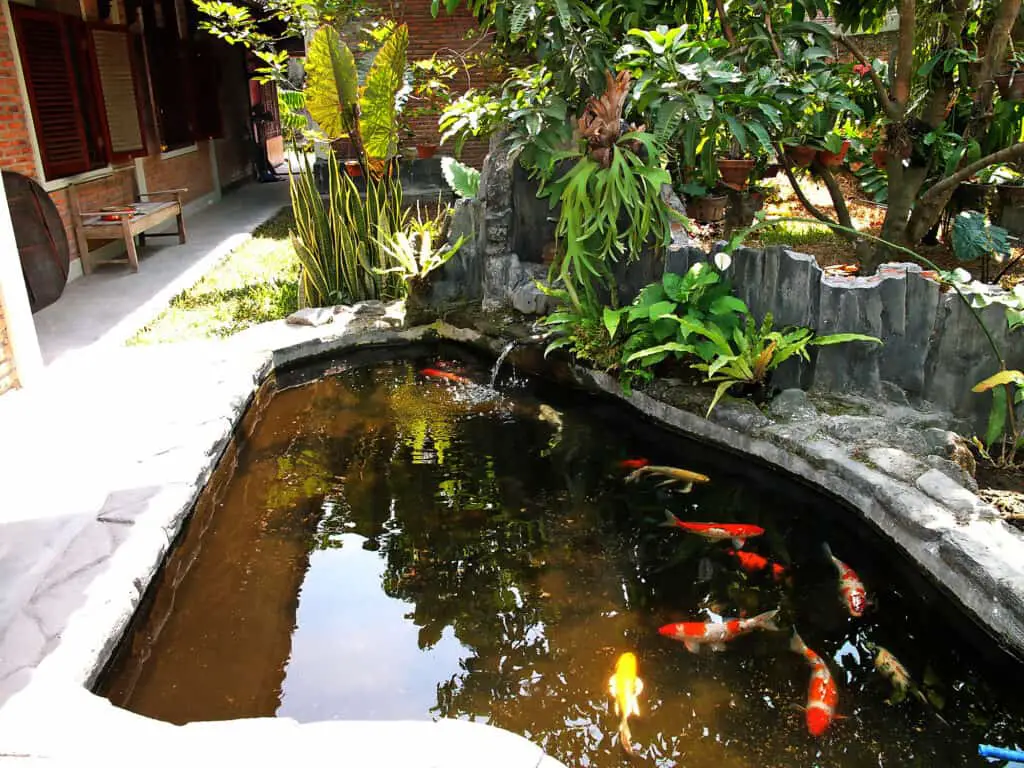
Koi Ponds Need Filters To Keep The Water Quality High
Koi ponds need filters to keep the water quality high. The fish produce a third of their weight in waste daily, which can rapidly build up, leading to stress and disease. Biological and mechanical filters and a bottom drain must be installed to maintain the purity of the water and remove ammonia and nitrates.
Koi Need A Lot Of Water Space
Koi need a lot of water space. The minimum volume for a koi pond is one thousand gallons. The pond depth should be at least three feet because they must swim up, down, and across. Overcrowding is stressful and unhealthy for koi, so it’s best to keep only a few in a pond of this size.
Experts say you should keep one koi per two hundred and fifty gallons of water as a general rule. You can only keep between four and six koi in a thousand-gallon pond. In metric terms, one thousand liters per koi is the recommended minimum. It would help to calculate how much water your pond holds and then buy your fish accordingly.
A fifteen hundred gallon pond will comfortably hold twenty-five to thirty-six-inch fish, but three years later, when they’ve grown to eighteen or twenty inches long, this is far too many. If you want to keep more koi, the pond must be bigger. Professional breeders allow more than two hundred and fifty gallons per fish.
The bottom line is you should rather have fewer fish than too many, as you have to allow space for them to grow. Two hundred and fifty gallons per fish is a minimum if you want them to grow big and healthy.
If there are too many fish per gallon, their growth will be stunted because they need plenty of exercise, and you don’t want to rehome your fish when they get bigger and outgrow the pond. Keeping koi is a long-term commitment that requires future planning.
Koi Can Get Injuries, Parasites, And Diseases
Koi can get injuries, parasites, and diseases that must be treated with medicines. This usually happens if the fish are stressed, or water quality is poor, but even in the best conditions, your koi may get parasites from time to time.
Koi Ponds Need Partial Shade
Koi need partial shade if they are kept outdoors and a pond deep enough to let them escape the sun’s heat. They are also vulnerable to local predators, so you may have to install netting or a fence around the pond.
You must partially drain the pond periodically to add fresh water, so you must install a pump. All the pond water must circulate freely for proper oxygenation – another reason you need a pump.
Koi Fish Can Be Expensive
Pond equipment usually runs on electricity, so your energy bills will be slightly higher, depending on the size of your pond.
Koi fish food can become expensive if you have many large fish to feed. They need to be fed different foods depending on the season.
How Long Do Koi Fish Live
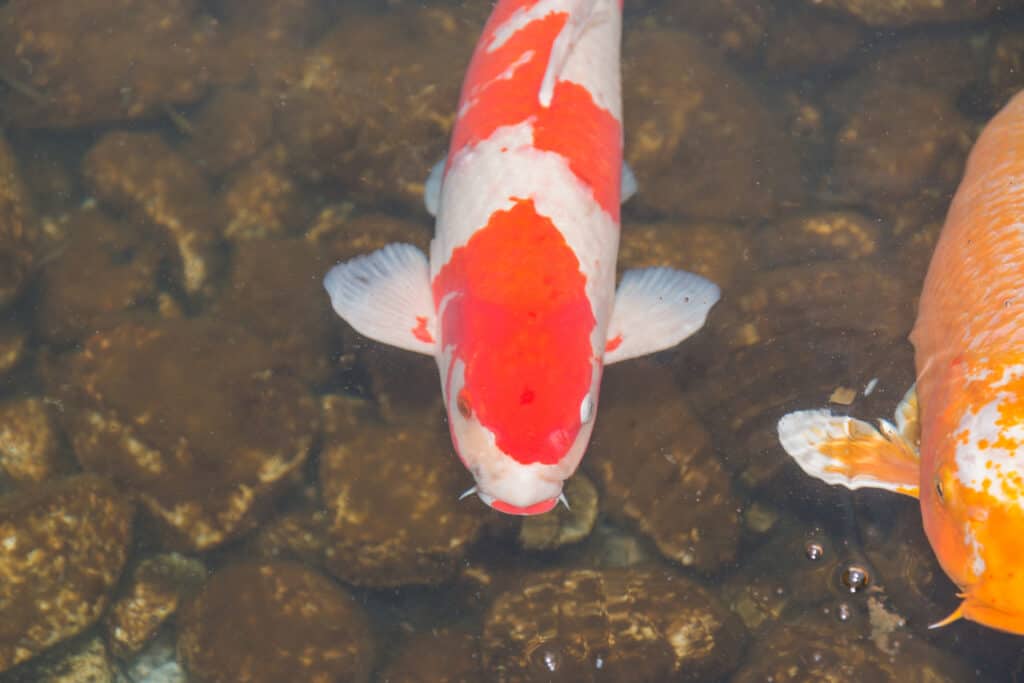
Koi can live for between twenty and thirty years and may even reach forty if conditions are good. Hanako is a legendary koi that allegedly lived for two hundred and twenty-six years and was passed down from one generation to another. If you diligently keep your koi pond clean and healthy for the fish, you’ll have fishy friends for life.
Conclusion
At the rate the koi hobby is growing in the US, many people think the advantages of keeping koi outweigh the disadvantages. The pros include the beauty and hardiness of the fish, environmental enrichment, improved property value, and having koi feeding from your hand. The cons include strict maintenance and monitoring of water quality, increased energy costs due to pumps and filters, and space restrictions.
References:
https://homeguides.sfgate.com/pros-cons-backyard-ponds-47295.html
https://feng-shui.lovetoknow.com/What_Do_Koi_Fish_Symbolize
https://www.thespruce.com/feng-shui-fish-for-wealth-1275337
https://www.hartz.com/things-to-consider-before-starting-a-koi-fish-pond/
https://cafishvet.com/koi/how-many-koi-per-gallon/https://www.magzter.com/stories/Home/The-Gardener/How-many-koi-can-I-keep-in-my-pond
